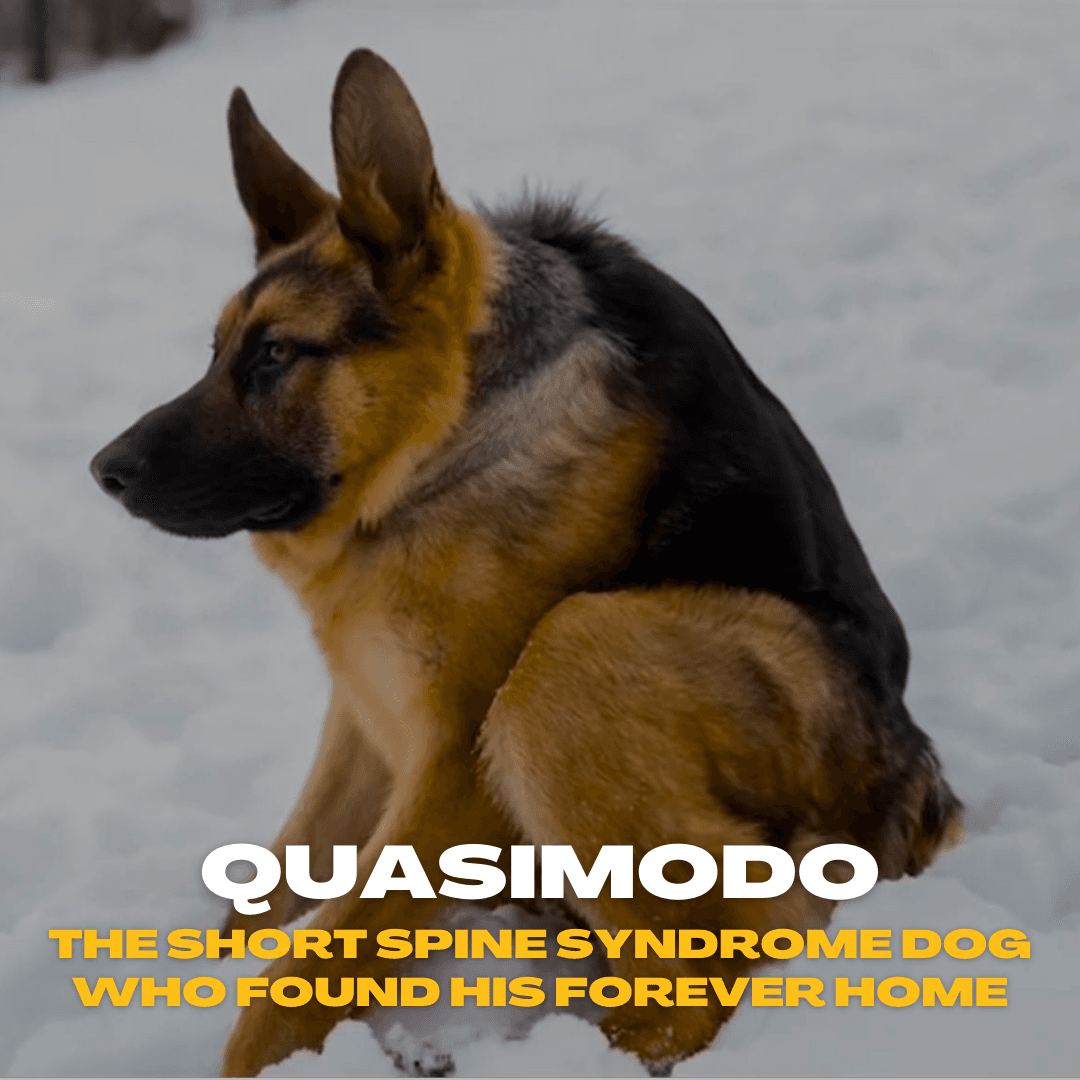With the unique long bodies and short legs, Dachshunds are beloved by many for their playful and loyal nature. However, their distinctive build also makes them prone to certain health issues. Understanding these common Dachshund health problems is crucial for ensuring your pup stays happy and healthy. In this article, we’ll explore five frequent health challenges that dachshunds face and offer healthy dog tips to help you manage them. We will focus on dachshund spine problems, which are among the most significant concerns for this breed.

Dachshund Spine Problems: Intervertebral Disc Disease (IVDD)
One of the most well-known Dachshund health issues is Dachshund spine problems, particularly Intervertebral Disc Disease (IVDD). Due to their long spines and short legs, Dachshunds are more susceptible to spinal injuries and disc degeneration. IVDD occurs when a disc in the spine ruptures or slips, putting pressure on the spinal cord, which can lead to pain, paralysis, or even surgery if left untreated.
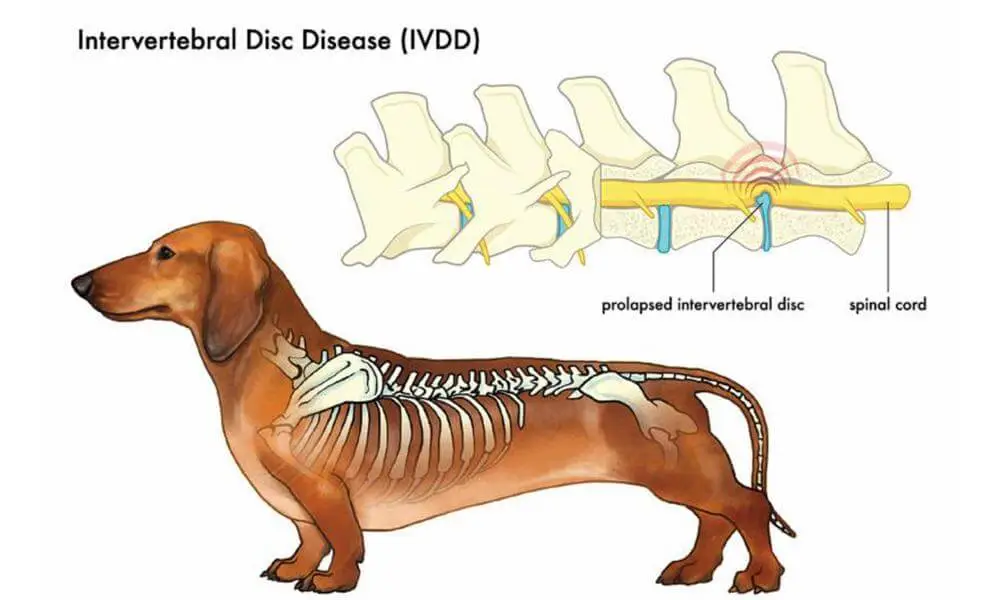
Prevention Tips:
- Avoid excessive jumping: Use ramps or stairs for high furniture to reduce strain on your Dachshund’s spine.
- Maintain a healthy weight: Obesity puts extra pressure on the spine, increasing the risk of IVDD.
- Regular exercise: Gentle, consistent exercise like walking helps keep muscles strong and supports the back.
Obesity
Dachshunds love to eat, and with their small frames, even a little weight gain can lead to obesity. Carrying extra weight not only exacerbates Dachshund’s spine problems but also increases the risk of heart disease, diabetes, and joint issues.

Prevention Tips:
- Balanced diet: Feed your Dachshund a well-balanced, portion-controlled diet tailored to their size and activity level.
- Limit treats: While it’s tempting to spoil your furry friend, stick to healthy treats and offer them in moderation.
- Exercise regularly: Keep your dog active with daily walks and play sessions to burn off excess calories.
Dental Problems
Dachshunds, like many smaller breeds, are prone to dental issues. Without proper care, they can develop plaque, tartar buildup, and gum disease, which can lead to infections and tooth loss.
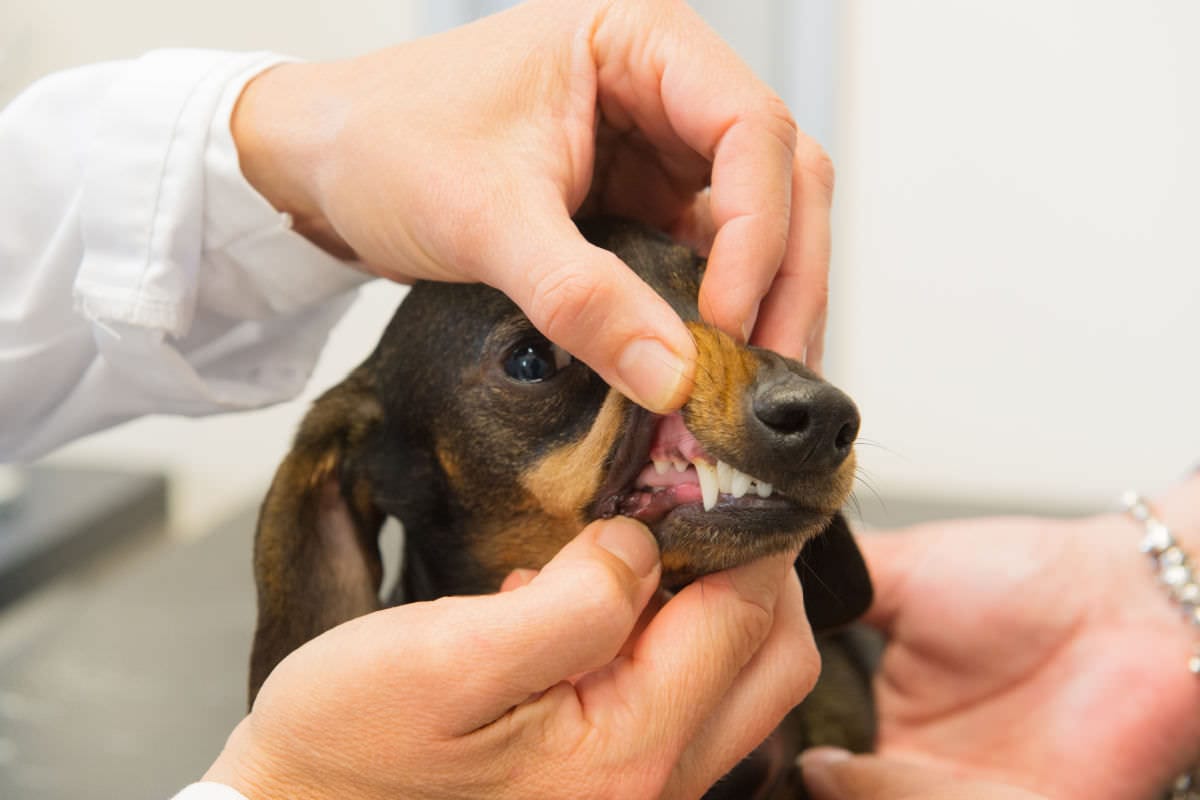
Prevention Tips:
- Brush their teeth: Make it a habit to brush your Dachshund’s teeth at least a few times a week with dog-friendly toothpaste.
- Regular dental check-ups: Schedule professional cleanings and check-ups with your vet to ensure oral health.
- Chew toys: Provide toys and dental chews designed to help clean teeth and massage gums.
Eye Problems
Dachshunds can be prone to various eye issues, including cataracts, progressive retinal atrophy (PRA), and glaucoma. These conditions can lead to vision loss if not addressed early.
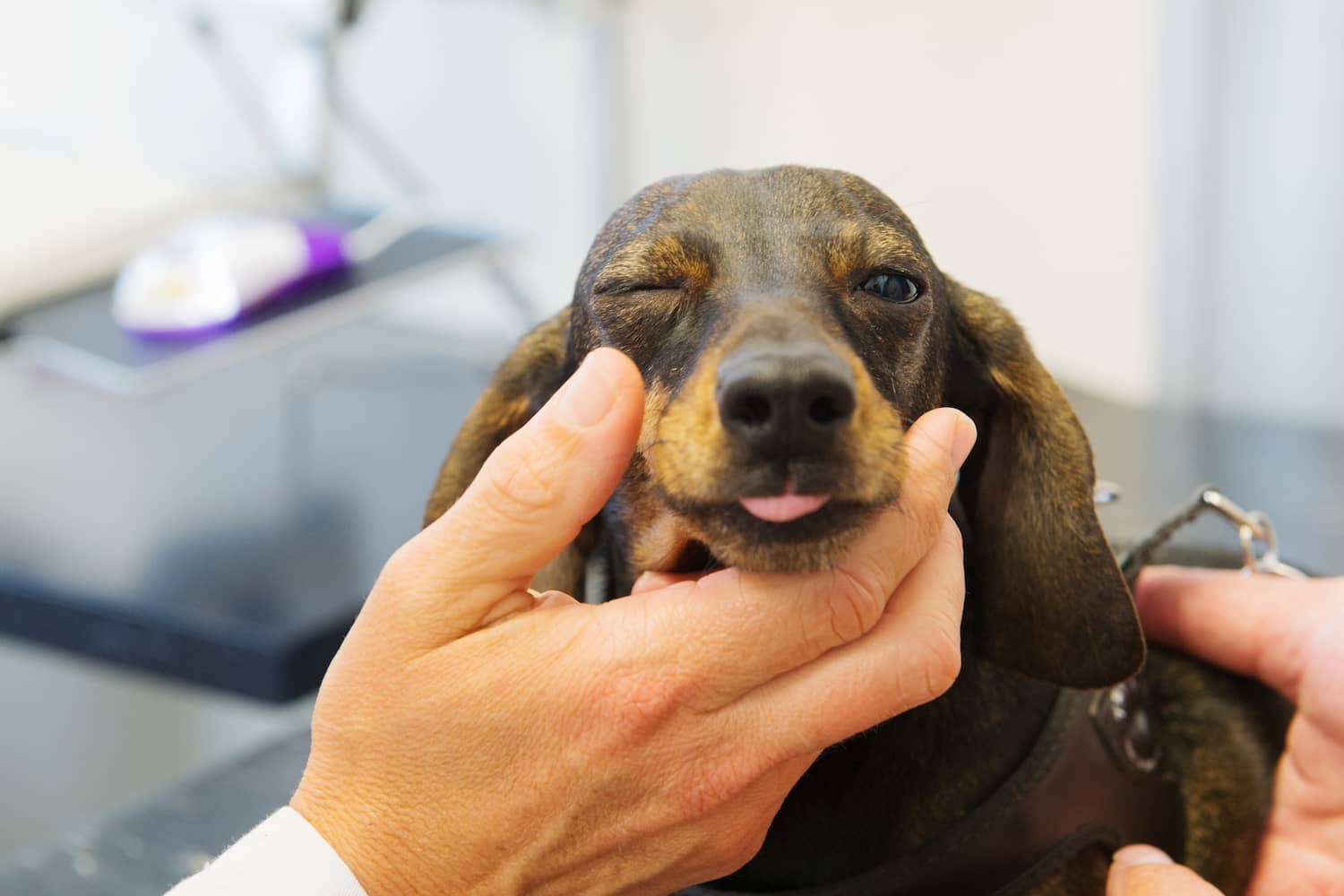
Prevention Tips:
- Regular vet check-ups: Routine eye exams can catch issues early and help prevent long-term damage.
- Watch for signs: If you notice your dog squinting, rubbing their eyes, or having cloudy eyes, consult your vet.
- Healthy diet: Include foods rich in antioxidants like carrots or supplements that support eye health.
Hip Dysplasia
Although more common in larger breeds, Dachshunds can also suffer from hip dysplasia – a condition where the hip joint doesn’t develop properly, leading to arthritis or lameness. This can make movement painful for your dog.
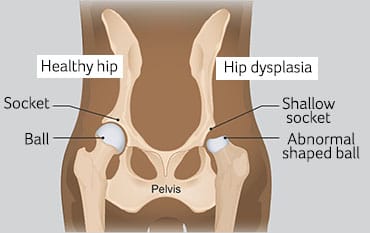
Prevention Tips:
- Keep them fit: Maintaining an ideal weight is crucial in preventing excess strain on their hips.
- Provide joint supplements: Consider adding glucosamine or other joint supplements to their diet, especially as they age.
- Low-impact exercise: Activities like swimming are excellent for keeping your Dachshund active without putting stress on their joints.
Conclusion: Keep Your Dachshund Healthy and Happy
Taking care of your Dachshund’s health is essential for their overall well-being and longevity. By being aware of common Dachshund health problems – like Dachshund spine problems, obesity, and dental issues—and implementing these healthy dog tips, you can help your pup lead a happy, active life. Regular vet visits, a balanced diet, and careful monitoring of their physical condition will go a long way in preventing health complications and ensuring that your Dachshund thrives for years to come.

By addressing their specific needs, you can give your Dachshund the best chance at a long, healthy life filled with love and joy!




